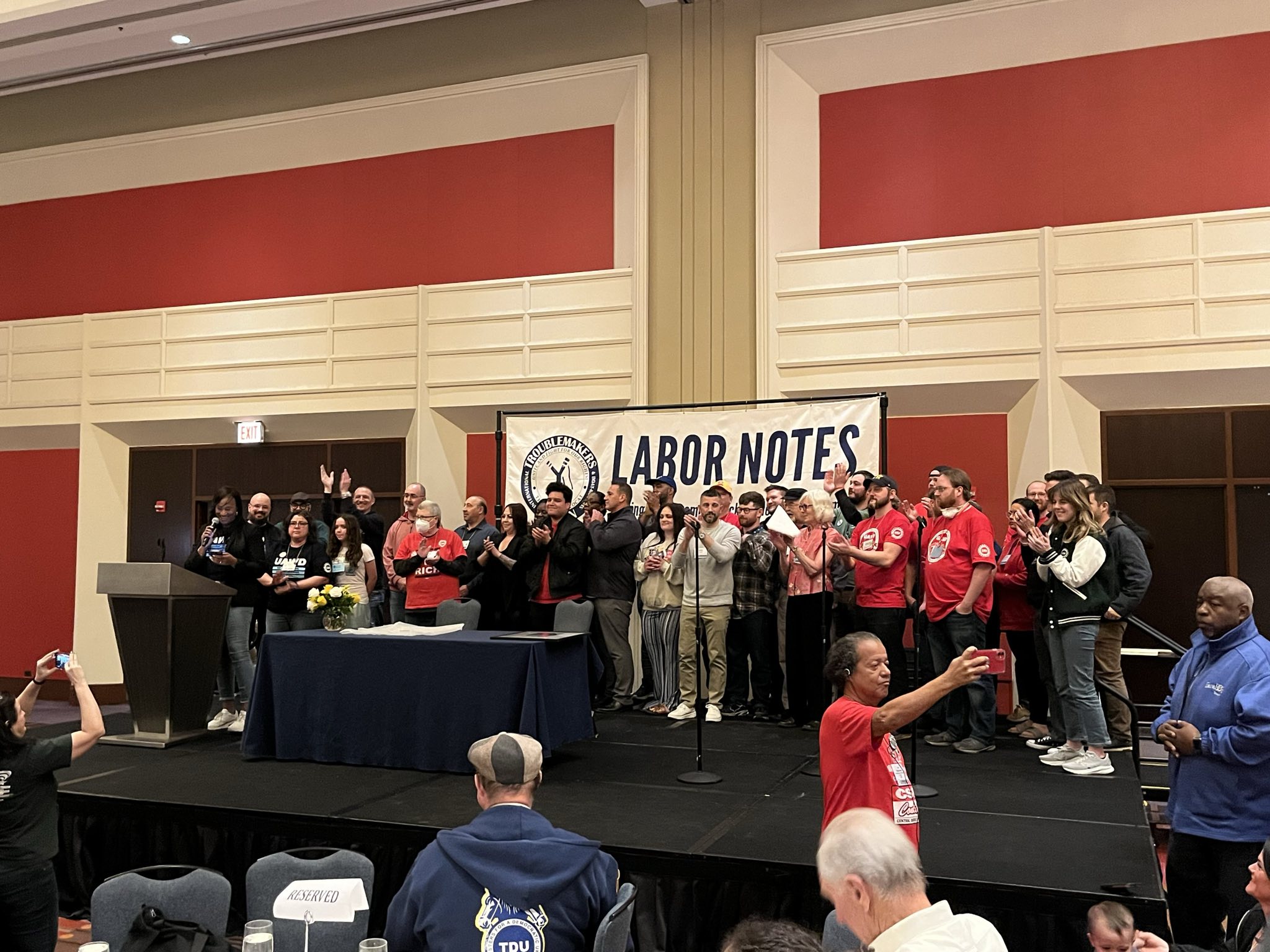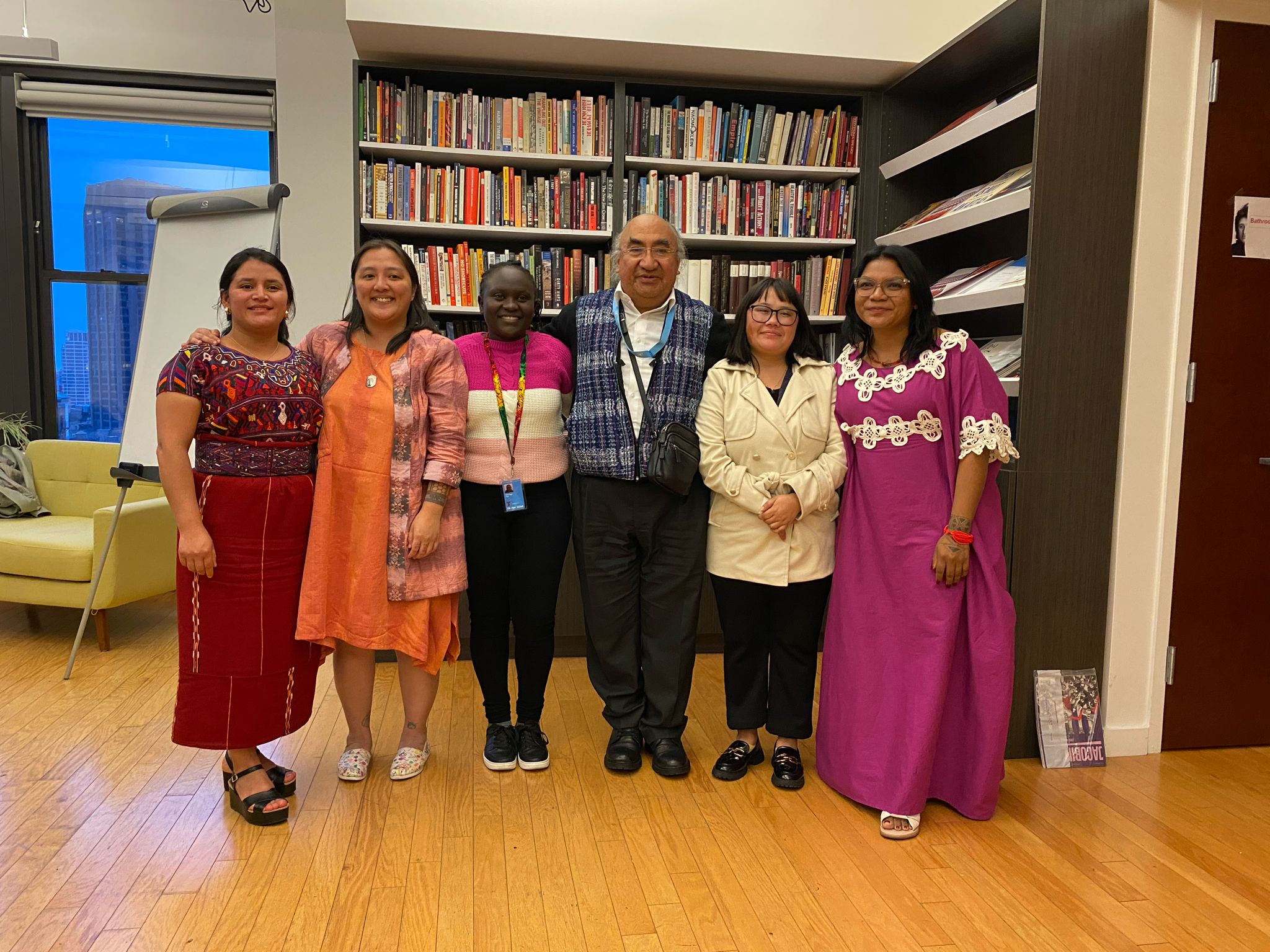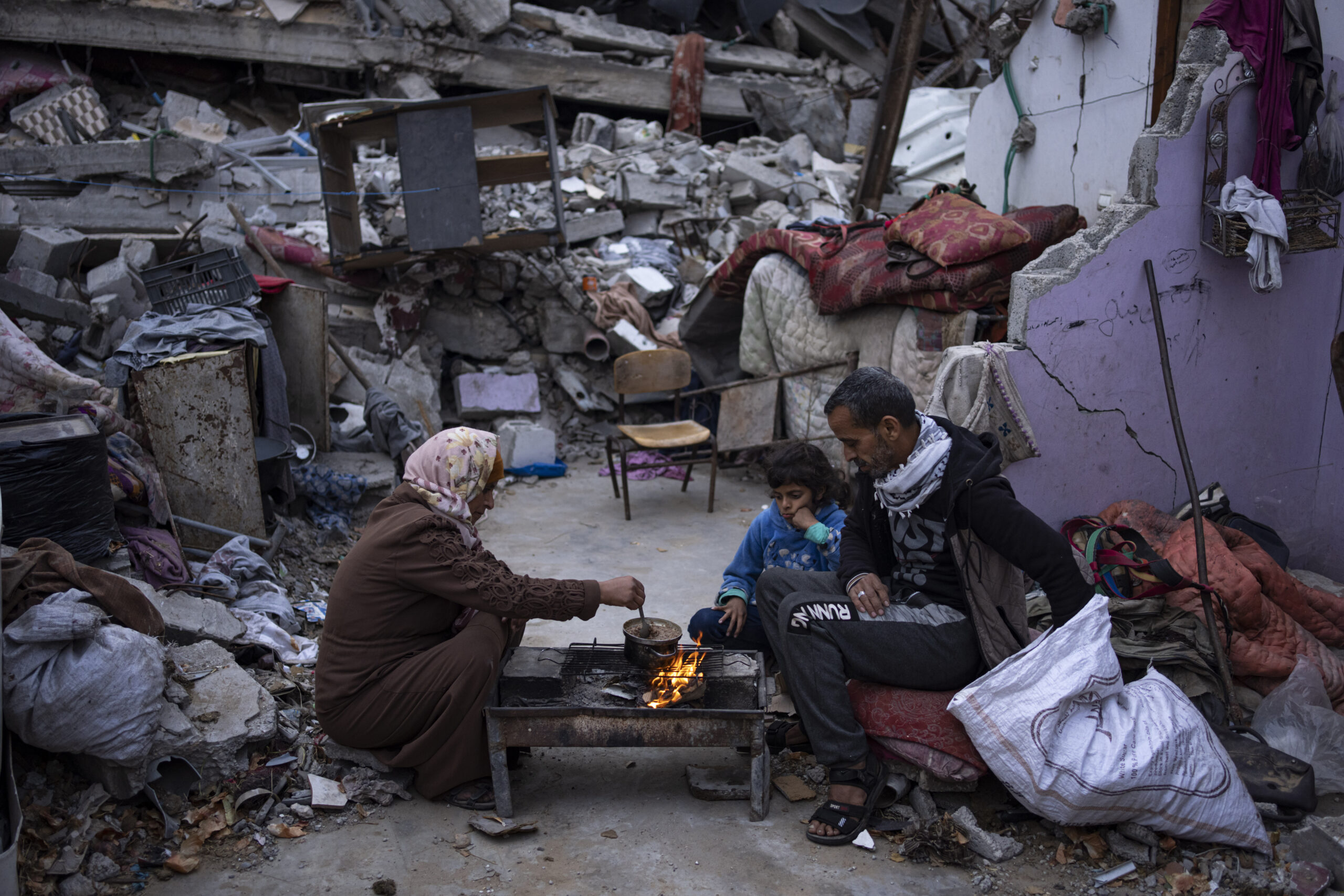The city Department of Homeless Services is in the process of making as many as 2,500 hotel rooms available as isolation spaces for sick or elderly residents of the city homeless shelters, where space to practice proper social distancing is limited.

from the Homeless Can’t Stay Home campaign. (Photo: Ben Fractenberg/THE CITY)
Yet most of the shelter system’s 17,000 single adults, and all of 3,500 known residents of the city’s streets and subways, have no space to isolate themselves.
As of Sunday, at least 40 homeless New Yorkers had died from coronavirus, with more than 600 infected, mostly in the shelters but 23 of them living on the streets.
Some advocates for the homeless are stepping up to start providing hotel rooms to some people left out of the city-funded program.
The “Homeless Can’t Stay Home” crowdfunding campaign has raised $46,000 and has placed 25 people in hotel rooms, according to Helen Strom of the Safety Net Project at the Urban Justice Center, one of the groups behind the campaign.
The money raised so far will accommodate the current occupants for up to four weeks. The campaign’s organizers are calling on City Hall to supply 30,000 rooms in all.
“This is DHS’ job, so we’re doing what they’re supposed to do,” said Strom. “We’re doing this to make a point of what the city could be doing, but they’re not. And it’s very simple: If you offer someone a safe, private space indoors, they will go inside, and they’re so grateful.”
Four homeless people staying in the crowdfunded hotel rooms spoke with THE CITY. Here are their stories, in their own words.
Interviews have been lightly edited for length and clarity.
LINCOLN CYRUS
Cyrus, 59, is a visual artist. He is staying in a hotel on Manhattan’s Lower East Side and has been homeless since 2005.
“Since November, I’ve been sleeping beneath the canopy in front of a building on 45th and Lex. A big nice building. After three days, the security guard told me to move. But he talked to me and when he saw I was clean, he told me I could sleep there, but had to leave at 5 a.m. every day. He looked after me and even gave me his number.
“I used to take a shower every day at my rec center. I paid a membership just for that. I showered, I used the gym, I used the pool. I like to maintain my health and I don’t like to stink.
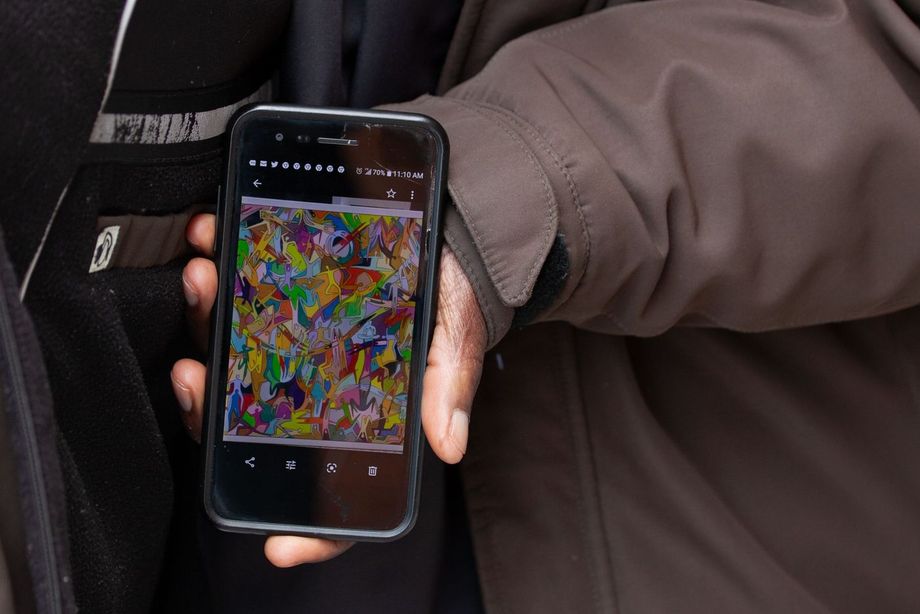
“The hotel was a word of mouth kind of thing. A friend knew a friend who had a caseworker through the Urban Justice Center. He asked to pass along my information and Helen called that afternoon. I was in a hotel that same night, not far from where I used to live, on the Bowery.
“But everything closed with the lockdown. I hadn’t taken a shower in a month and a half before I got to the hotel.
“Being homeless…it’s like a demon inside you. It’s horrible what it does to you. It’s like extra bad luck. Like a nightmare that doesn’t end. No matter what you do, if you do things right, you can’t get out. It follows you for the rest of your life.
“That first night at the hotel, I was so happy. My emotions got the best of me. I didn’t cry or anything. But I was very emotional.
“I showered for half an hour. I bought foot scrub to scrub my feet. I took time to take care of my body with water and soap. Then I sat down, relaxed, watched a little TV. I felt very, very happy not to be on the street anymore.”
JEFF WOLFORD
Wolford is a 33-year-old New York native. He has been homeless for three years and is staying in a hotel on Manhattan’s Lower East Side.
“I work for an upholstery company and have a side gig shining shoes and stuff.
“Working in upholstering means you’re going into people’s houses. So you gotta dress well, be clean, and shower. They have no idea I’m homeless.
“But since the pandemic started, showering was harder. In between, I was cleaning myself with baby wipes.
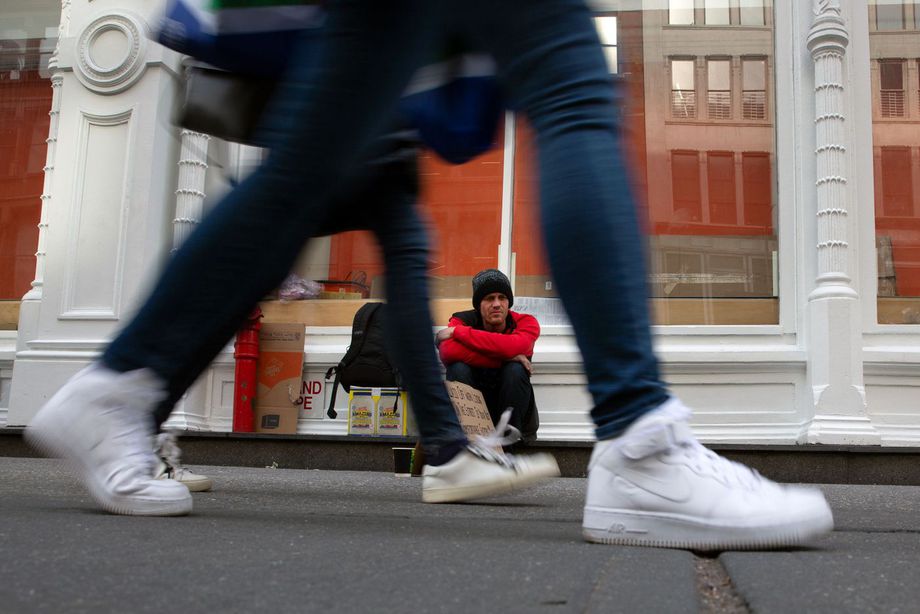
“I’ve been homeless on and off for about three years. There was an eight-month period I lived with a family member while I worked on a job in Plattsburgh, but I got kicked out. I also spent some time at the 30th Street Men’s Shelter, and that was awful. I didn’t last long, maybe a month or two. I’ve been living in subway stations since.
“My room is nice: It doesn’t have a stove, not that I’m a great cook, but it has a microwave, an ironing board and a desk that I can set up for when I have my job interviews. I dress up for those. I’m in the FedCap program, and they’re helping me find a better job and apply to school. I want to be a veterinarian. But the most important thing is I can shower.
“When I got here I only had a bag of clothes, and an onion bag with hygiene products. And that’s about it. I think that first night I slept about 12 hours. It felt so good to sleep in a bed. I don’t think I’ve slept that long since I was a teenager.
“I have noticed a change in my mood since I got to the hotel. They told me that I’ll have it for at least a month. I’ve been here for like a week now. I wake up in the morning and I don’t feel despair. When things don’t work out, I don’t feel as forlorn as I used to.”
ASHLEY BELCHER AND NUNU JEFFERSON
Both Ashley Belcher, 27, and Wiaheed “Nunu” Jefferson, 35, have been in and out of homelessness for most of their lives. Belcher is a Carbondale, Penn., native and has lived on the streets of New York for three years. Jefferson is from New York City. The couple is sharing a hotel room in Times Square.
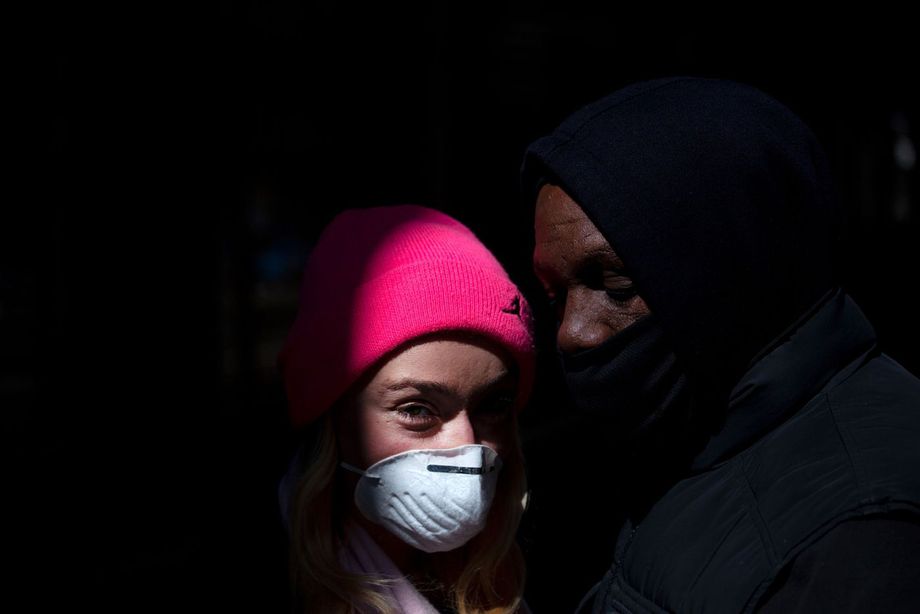
Belcher
“I have my backpack, with soap, lotion, my nail kit, and some toys. I’m a drinker. But the toys keep me sane. They’re like my babies. On the street, we’d sleep in shifts so we could watch out for each other, and kept to ourselves.
“We used a laundromat nearby. One day when we went to pick up our clothes and our sleeping bags from the dryer, it was closed. We had just been there to drop our stuff off! The sign said it was because of the coronavirus. One of the people in the neighborhood, a lawyer, gave us $20. They all know us. Another gave us her blanket.
“For three years, I’ve told the outreach workers “I won’t go [to a shelter] unless my man goes.” Because we’re not married, we’d have to be split up, since we can’t go to a family shelter. That’s why we’re on the street.
“When I heard about the hotel, I thought it was a joke.
“For someone living with IBS, colitis and asthma, I can finally say I feel relieved I do not have to cause self-harm by holding my bowels until I get to the Bowery Mission.
“Before the pandemic, I could go to a McDonald’s or something to use the bathroom. But now everything is closed. I don’t like going to the drop-in center anymore because it’s so crowded and dirty. I haven’t showered in months.
“At the hotel, the first thing I did: I showered, slept 10 hours and showered some more. A shower is all the difference to someone who cares about themselves. It feels good to have a place to come back to at the end of the day.
“The only negative I can see that may possibly come out of this — if or when we have to stay out there again and no longer have a hotel to ‘run back to’ — is we realize we’ve become more vulnerable than before we left the streets.”
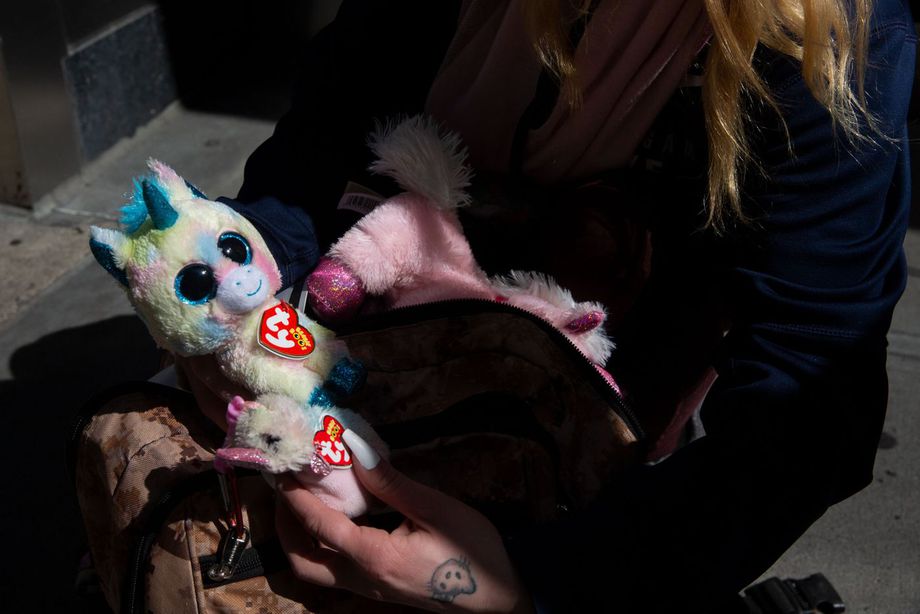
Jefferson
“We used to sleep on 16th Street, between 6th and 7th Avenue. We had sleeping bags we laid on the floor as our bed. It was right in front of a building, so the sidewalks are wider. We had space. It may not have looked like much, but it was a home. It was our home.
“Every day, before we got the hotel, as soon as we woke up, we would walk all the way to Second Avenue, to the Bowery Mission, just to use the bathroom. We only did this once a day. The rest of the time we were back home. We can’t be out and about. I don’t want her to get sick.
“That first night at the hotel, I think I showered, oh God, it must have been an hour. I shower three times a day now. It’s like I’m still in survival mode, like I still act like I don’t know when my next shower’s going to be.
“Every day I try to protect her. I go to the pharmacy, try to get her medicine, tell people to stay six feet away. I pick up food at the food soup kitchen or at the schools. I don’t want her to get sick. She’s my kryptonite. I don’t know what I’d do without her.
“I’m happy now, having a real bed to sleep in, a place to rest. I feel stable.
“I’m trying to get a job. I’m on welfare but if I got a job I could finally get back on my feet. I’m doing things around here, taking out the trash and stuff, cleaning up the hallways. Maybe they’ll hire me.”
This story was originally published by THE CITY, an independent, nonprofit news organization dedicated to hard-hitting reporting that serves the people of New York.”
